The Saturday Read: Rulers, rebels and reformers
Inside: Ukraine, Tommy Robinson, Kamala Harris, James Joyce and God.
Good morning. Welcome to the Saturday Read, the New Statesman’s guide to politics, culture, books and ideas. This is Finn, along with Nicholas, Pippa and George.
The commanding heights of the Democratic establishment gathered in Chicago this week for the party’s national convention. Four days of “incessant praise” for Kamala Harris culminated in her speech on Thursday night. It was a high-stakes event and perhaps Harris’s first major challenge of the campaign. Our newly minted Washington correspondent, Freddie Hayward, sketched the policy-light and vibes-heavy overture for us here. Luckily for her it was received well. Though Freddie suggests she could have said anything and still received rapturous applause.
This feels like an entirely new party. In a famous 1994 Simpsons parody of the DNC a lone politician stands thin-lipped on a stage below two banners that read “We hate life and ourselves” and “We can’t govern!”. This attempt to capture the soul of the Democrats – sober, immiserated, neurotic – has had remarkable sticking power. But for the first time in a while the joke no longer works. The word I keep seeing being used to describe this year’s convention is “energised”.
Ever since Tim Walz went on MSNBC in late July and called Donald Trump and JD Vance weird, it seems something major has shifted. “Weird” became the central attack line. And Trump was cast more frequently as an oddball, rather than an existential threat to the future of the nation and the global order. It’s nice to see the Democrats less interested in apocalyptic doom-mongering, and instead ready to hash out a positive case for Harris’s election. Is this the Kamala effect? Or the Biden-resignation effect? The Democrats are obviously buoyed, but the polls remain very close. We want to know what you think – tell us below:
The picks…
Good morning, Nicholas here. The August bank holiday weekend is the last celebration of summer, but this year’s looks set to be blighted by Storm Lilian. A moment of light and shade, then, much like this week’s Saturday Read. There’s Ellen Peirson-Hagger on PJ Harvey, Clive Martin on Steven Bartlett and Jill Filipovic on a rejuvenated Democratic Party. Then, Brendan Simms looks at Ukraine’s offensive and William Boyd studies the court of Adolf Hitler. I’m signing us off this week, with some unexpected assistance from James Joyce. Thanks for reading, and have as clement a long weekend as you can.
1—“Fighting not only for their sovereignty, but our security.”
Ukraine’s surprise incursion into Russian territory this month may have upended the dynamic of this long and slow war of attrition. Brendan Simms lays out the stakes for Ukraine, the Baltics and Britain. FMcR
Zelensky has reminded us that Russia is beatable. The tsars were defeated in Crimea in 1856 and in Manchuria in 1905; in the 1980s, the Soviet Union performed no better in Afghanistan than Britain had in the 19th century. Each of those defeats was followed by a turn for the better (albeit regrettably brief) in Russian domestic politics. The Crimean War forced the tsar to emancipate the peasants; defeat by Japan precipitated the first moves towards constitutional government; and the Afghan debacle helped bring down the communist dictatorship. We have an interest in seeing not only a Ukrainian victory but a Russian defeat.
2—“I have a lot in common with Tommy Robinson.”
A fixture of far-right activism for almost two decades, Tommy Robinson made an unwelcome return to public life during the riots this summer. He sells himself as the authentic voice of a forgotten working class. But Thomas Peak, from the same area as Robinson, begs to differ. NH
Though (I think) I never met Tommy, I know his world, and I did meet some of his later collaborators… He is not the “authentic” voice of the “genuine working class”. We saw in the response to the pogroms that a majority of people reject his rhetoric. But we can tear his claims out from the roots by looking at the real Luton, not his dystopic account of a bear-baiting pit contested by mutually hostile ethnic groups.
3—“Bartlett has gone full-time as a kind of junior Branson.”
Steven Bartlett happened gradually, and then suddenly. From just another digi-millionaire, he now accompanies Prince William on royal duties, presents one of the nation’s favourite podcasts and judges other entrepreneurs on Dragon’s Den. Clive Martin investigates the phenomenon. NH
Like the mega-capitalists he admires, Bartlett is avoidant, opaque and prone to a bit of reputational overplaying. But unlike Peter Thiel or Jeff Bezos, he is also now a stalwart of light entertainment – and together these two outlooks collide into a profile that sits rather uneasily, considering the establishment circles he moves in. On its own, Diary of a CEO is an ambiently listenable bit of content fluff, but Bartlett’s ambitions are clearly higher… Make no mistake, Bartlett is a man of the zeitgeist, one who’s vision and lexicon seems perfectly tailored for the age of LinkedIn nonsense and Instagram-hustling.
4—“A Clinton win seemed almost inevitable.”
After a rapturous Democratic National Convention, Kamala Harris may well become America’s first female president. That honour was once promised to Hillary Clinton. Jill Filipovic writes that the Harris-Walz ticket has to learn from her myriad mistakes. NH
Identity, of course, is still front and centre, it’s just that Harris isn’t putting her own female, black and Indian American identities at the fore. Her choice of Walz as vice-president is evidence of a clear effort to appeal to working-class white men, a constituency that will no doubt be won by Trump, but which Democrats do need some support from. Young men, too, have been tacking right since 2020, a trend Democrats need to reverse. By speaking directly to these guys – or at least by refusing to speak in a way that seems to come at their expense – Harris and Walz are trying to send the message that their campaign isn’t about putting some groups ahead of others.
To enjoy our latest analysis of politics, news and events, in addition to world-class literary and cultural reviews, click here to subscribe to the New Statesman. You’ll enjoy all of the New Statesman’s online content, ad-free podcasts and invitations to NS events.
Higher interest rates, pressures on public finances, energy supply shocks and fractured supply chains – all of these, and more, are forcing changes in the way industries and infrastructure are funded and the private sector must play its part – now more than ever. Click here to learn more.
5—“Her wish never to repeat herself.”
Ellen’s latest piece conveys a whole career, and maybe even a whole life. I didn’t know PJ Harvey’s catalogue when I dove in, but I left with elaborate, detailed feelings about our “most adventurous living musician”, and the only artist to win the Mercury Prize twice. GM
Opening her late-summer set in Gunnersbury Park, west London, PJ Harvey sang: “Wyman, am I worthy?/Speak your wordle to me.” A pink haze had settled across the sky just before she appeared onstage to the sound of birdsong, church bells, and electronic fuzz. In the lyric… Harvey sings in the dialect of her native Dorset. Wyman-Elvis is a Christ-like figure, literally an all-wise warrior, who appears throughout the album, and “wordle” is the world. For the next hour and a half, as the sky darkens and Harvey and her four-piece band perform underneath a low, red-tinged moon, they conjure their own wordle, one of riddles and disquieting enchantment.
6—“Inside the court of Adolf Hitler.”
Richard J Evans’s fourth book on the history of Hitler’s Third Reich – Hitler’s People – takes a biographical approach to the regime’s personalities (from Albert Speer and Ilse Koch to the Führer himself). William Boyd concludes that if you only read one book about Hitler and Nazi Germany, it should be this. PB
Evans starts his brilliant hundred-page biography of Hitler with the sentence: “For the first thirty years of his life, Adolf Hitler was a nobody.” Here lies the utterly compelling paradox. As Evans reminds us, without Hitler there would have been no Third Reich, no Second World War and no Holocaust. How could this deranged young man, selling his mediocre postcards in 1913 Vienna, wearing a yellow cycling cape that failed to disguise his rank body odour, end up as chancellor of Germany 20 years later and, through his crazed ambitions, have plunged the Western world into war and brought about the deaths of millions of people?
7—“Almost suicidal.”
The winter fuel allowance – introduced by Gordon Brown’s Treasury in 1997 – miraculously survived seven Conservative chancellors. Now, it has been scrapped under Labour. George Eaton explains how the party has set itself up for a treacherous winter. FMcR
One northern Labour MP told me they had received more letters on winter fuel payments than any other issue in recent years, including the war in Gaza (more than 370,000 people have signed an Age UK petition). Ministers have been reprimanded in supermarkets by lifelong Labour voters warning that they will no longer support the party. A focus group by More in Common in Leigh captured something of the rage: “I’ve been a trade unionist and this just feels as though it’s a serious betrayal of all the principles that the Labour Party was founded upon,” said one participant. Another declared: “I never thought Labour would do that when I voted for them.”
8—“The values we regard as universal are nothing of the sort.”
Most Britons are no longer worshipping, baptising their children, getting married or having funerals in a church. Yet 46 per cent still describe themselves as Christian. In our cover story this week, Madeleine Davies considers what is behind religion’s comeback. PB
Many would argue that a tolerant outlook is rooted in the Church of England. “We don’t watch church members’ lips, let alone their hearts, when they say the Creed,” pronounced a Sussex vicar in a letter to the “Times” recently. In Anglican circles, concern has been expressed that the direction of travel – which includes the aim of making “missional disciples” – risks alienating the Church’s “cultural fringe” in its zeal. A 2021 book, “Seeing Ourselves as Others See Us: Perceptions of the Church of England”, noted that it was this fringe – defined as those who attended occasionally – that was the Church’s fastest-declining constituency.
George’s Best of the Rest
David Schurman Wallace: The last High Modernist.
Lucy Jakub: Be yourself.
Lucy Jones: The profound loneliness of motherhood.
Alan Siegel: The legacy of BoJack Horseman.
Rob Long: How ketamine turned deadly for Matthew Perry.
One half of a world-famous gay penguin couple dies and a sea bird chorus mourns him.
And with that…
One of the delights of working at the New Statesman is browsing its archive. Hours can and have been lost in search of otherwise uncollected Martin Amis and Clive James works – the former’s sketch of Tory party conference from Blackpool in 1977 is a neglected gem. But the Saturday Read team was blessed with fresh quarry this week when, on a trip to the James Joyce Museum in Dublin, our colleague Megan Kenyon came across an NS contribution from the man himself.
The piece (“From a banned writer to a banned singer”) was originally published on 27 February 1932 and is a tribute to the Irish tenor John Sullivan. These were anni horribili for Joyce – he’d had his teeth removed, gone blind in one eye, and was continuing his interminable labours on that “cold pudding of a book”, that “seven-hundred page crossword clue”, Finnegans Wake. We are therefore delighted to see that he summoned some of the high song of Ulysses for the NS: “Just out of kerryosity howlike is a Sullivan? It has the fortefaccia of a Markus Brutas, the wingthud of a spread-eagle, the body uniformed of a metropoliceman with the brass feet of collared grand. It cresces up in Aquilone but diminuends austrowards…”
Let us know if you are keen to see more of the NS archive in the Saturday Read.
— Nicholas
The New Statesman is home to the finest writing on politics, culture and ideas. To stay up to date, subscribe using the link above.


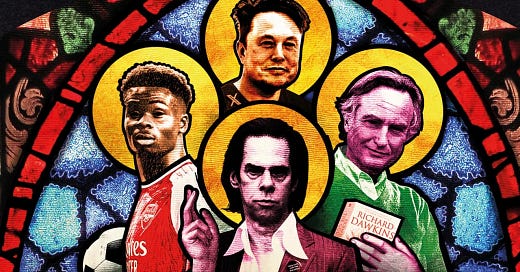









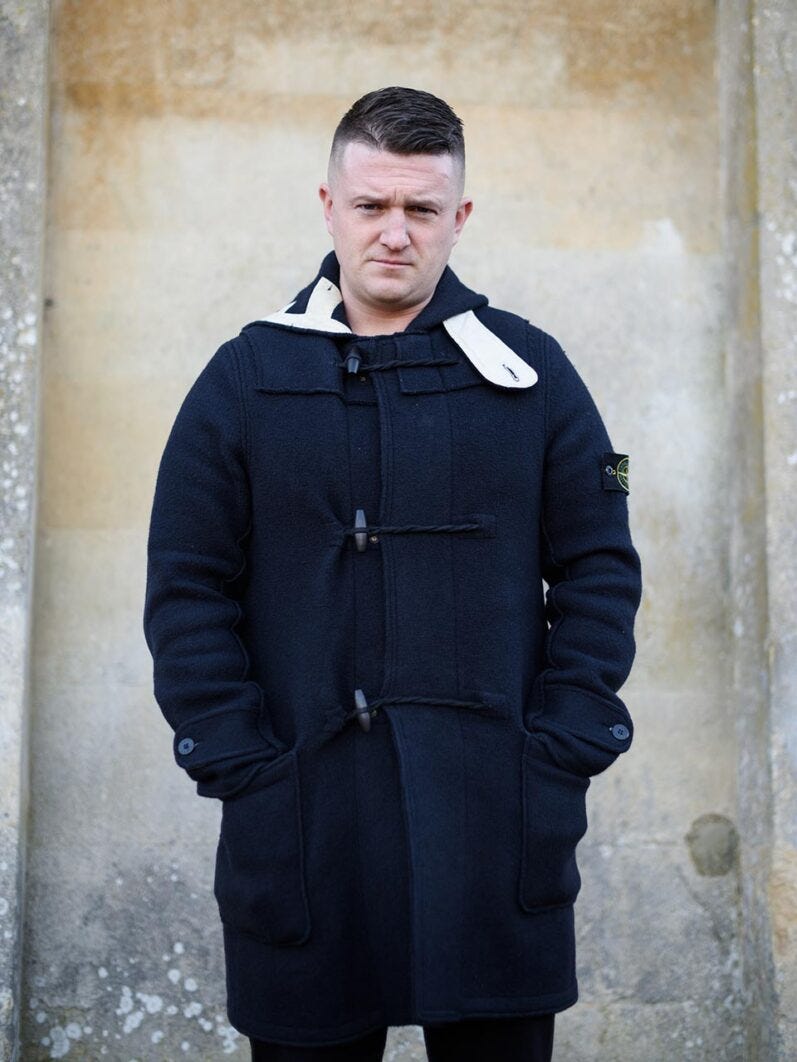


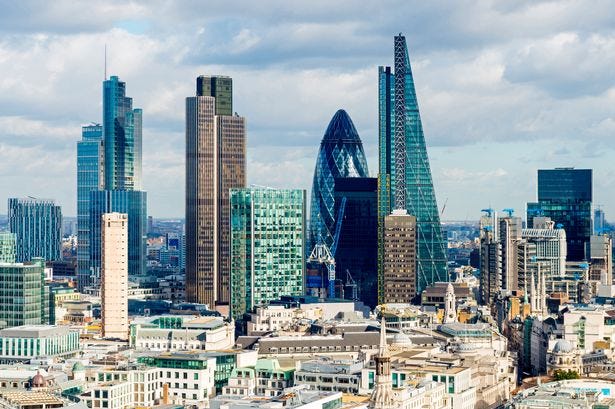


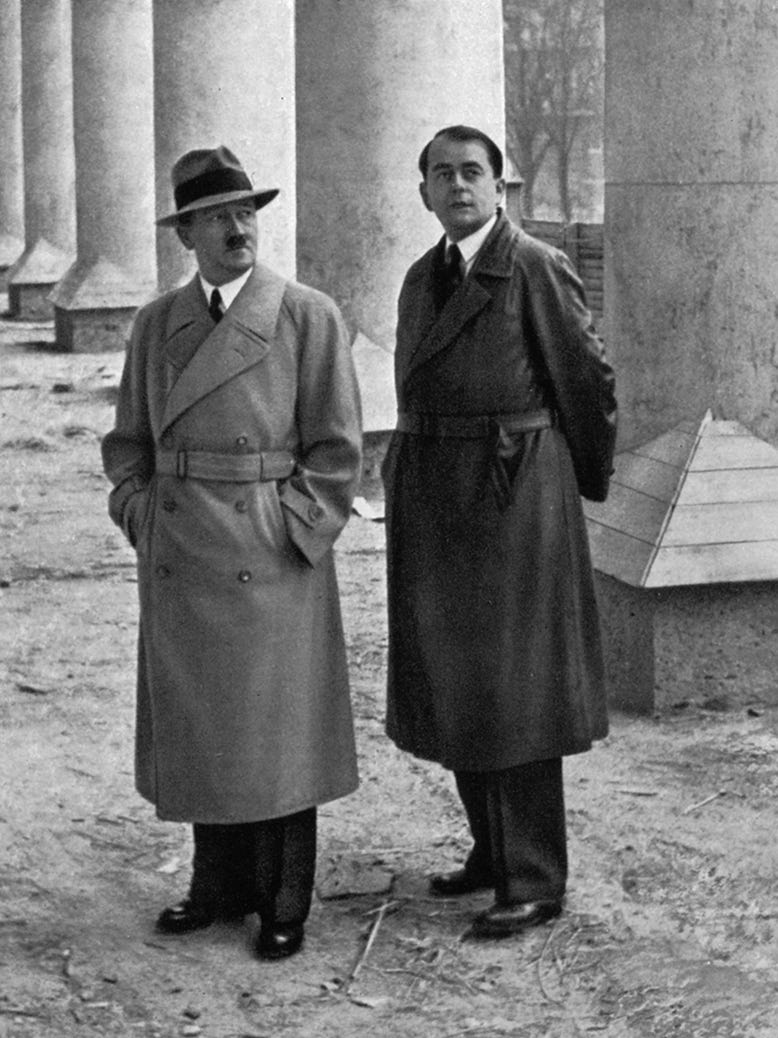
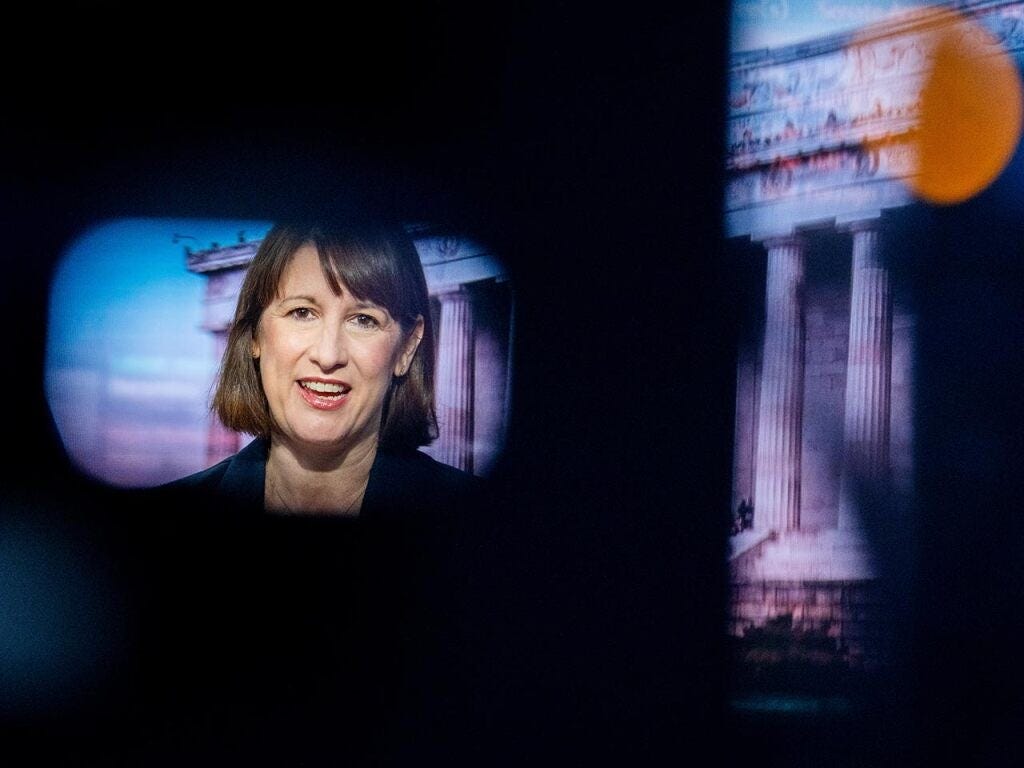
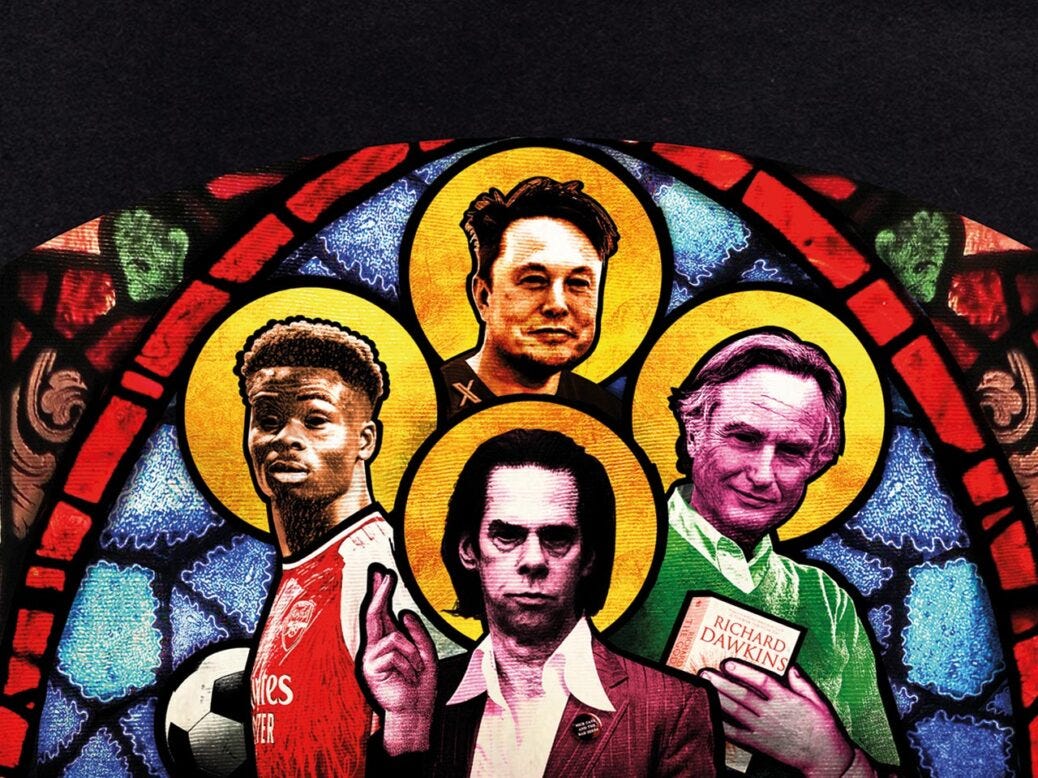

Pretty shocking that the New Statesman can publish in this particular week without one mention of the ongoing terror in Gaza...
"Most Britons are no longer worshipping, baptising their children, getting married or having funerals in a church. Yet 46 per cent still describe themselves as Christian" - this may well be true, but wish there was acknowledgement amongst journalism that there are other non Church of England churches, that are full of people on Sundays.
Other than that, another interesting round up!